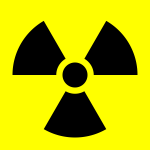A regional expert said on Wednesday that Iran has done “everything” to reach a “starting line” to build a nuclear weapon, although he cautioned that he did not believe Iran has made the decision to do so yet. Nuclear expert Dr. Ephraim Asculai, speaking in a conference call sponsored by The Israel Project, said that once Iran crosses that “starter’s line,” it will take “around a year, give or take a few months” to build a bomb.
Asculai, a senior research fellow at The Institute for National Security Studies (INSS) in Israel, said he does not feel current international sanctions are “strong enough” or “timely enough” to stop Iran.
“I think that if the sanctions were stronger, much stronger at the moment, at least the Iranians would be willing to sit down and to discuss seriously the issues,” said Asculai. “And the time, it’s now; they are playing for time. And they are very good at that game.”
Asculai, who worked primarily on safety matters at the Israel Atomic Energy Commission (IAEC) for more than 40 years, said that Iran has done most of the nuclear fuel enrichment work needed to build a nuclear weapon. Iran has multiple tons of enriched uranium to 3.5 percent, which is needed for nuclear power, and has been working on enriching uranium to 20 percent, which is used for research.
Weapon’s grade is generally thought to be 90 percent, but Asculai said that just enriching to 20 percent is “90 to 95 percent of the work needed” to reach that military level for nuclear fuel.
“The machines are the same, their arrangement is almost the same—some changes must be made,” said Asculai. “And the effort is not a very long-time effort. It can be done in very few months. If you begin at 20 percent, the enrichment period certainly can be measured already in weeks and not in many months.”
In addition to continuing the uranium enrichment needed for a bomb, Iran also must master the complex technology behind nuclear bombs and mounting them on missiles, although the International Atomic Energy Agency (IAEA) is concerned they may have done related research already.
“I think that no one today can say that the Iranians are working towards building nuclear weapons,” said Asculai. “I think it is very correct to say that the Iranians want to have the potential to arrive at a nuclear weapons capability within a short time after the decision is taken.
“The decision is the important part here, because they have achieved most of the technical aims—most of the technical lines and achievements that they wanted to have. And that is the way that things are going.”
The nuclear expert did feel that the more cautious estimates of the Americans are closer to the reality of the situation, noting that Israel is looking at “the worst possible case.” Nonetheless, he currently feels the two opinions on Iran are “converging more rapidly than we thought in the past.”
Asculai said that the West does not know how Iran’s government thinks or whether it meets Western standards of rationality, although he did say that nuclear weapons have a pretty consistent history as a deterrent and as a power base, not as an offensive weapons.
“So while I’m reasonably sure that they are not going to use them, they certainly would like to have them, on the one hand. And on the other hand, I think that if Iran has the capability, it would certainly go around proclaiming that fact to all and sundry.”
(By Joshua Spurlock, www.themideastupdate.com, March 2, 2012)

